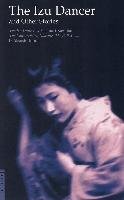This Japanese literature collection contains four translated stories from two of Japan's most beloved and acclaimed fiction writers.
The Izu Dancer, Yasunari Kawabata's first work to bring him recognition as a writer, is a novella about six Izu Peninsula travelers. As the six travelers journey together, intimacy develops and friendship overcomes class differences. Capturing the shy eroticism of adolescence, The Izu Dancer is a charming picture of the times.
Yasushi Inoue's The Counterfeiter, although set in modern times, poses universal questions that transcend culture an era. Abasute and The Full Moon both explore themes of separation, loneliness, and isolation. Through the gloomy tales, Inoue's compassion shines, revealing yet another aspect of an author known for his vivid precision and economy of words. Inoue's stories are at least partially autobiographical, and Inoue's attitudes toward human destiny and fatalism are strongly influenced by his separation from his parents at an early age-yet all of his stories reveal his great compassion for his fellow human being.

